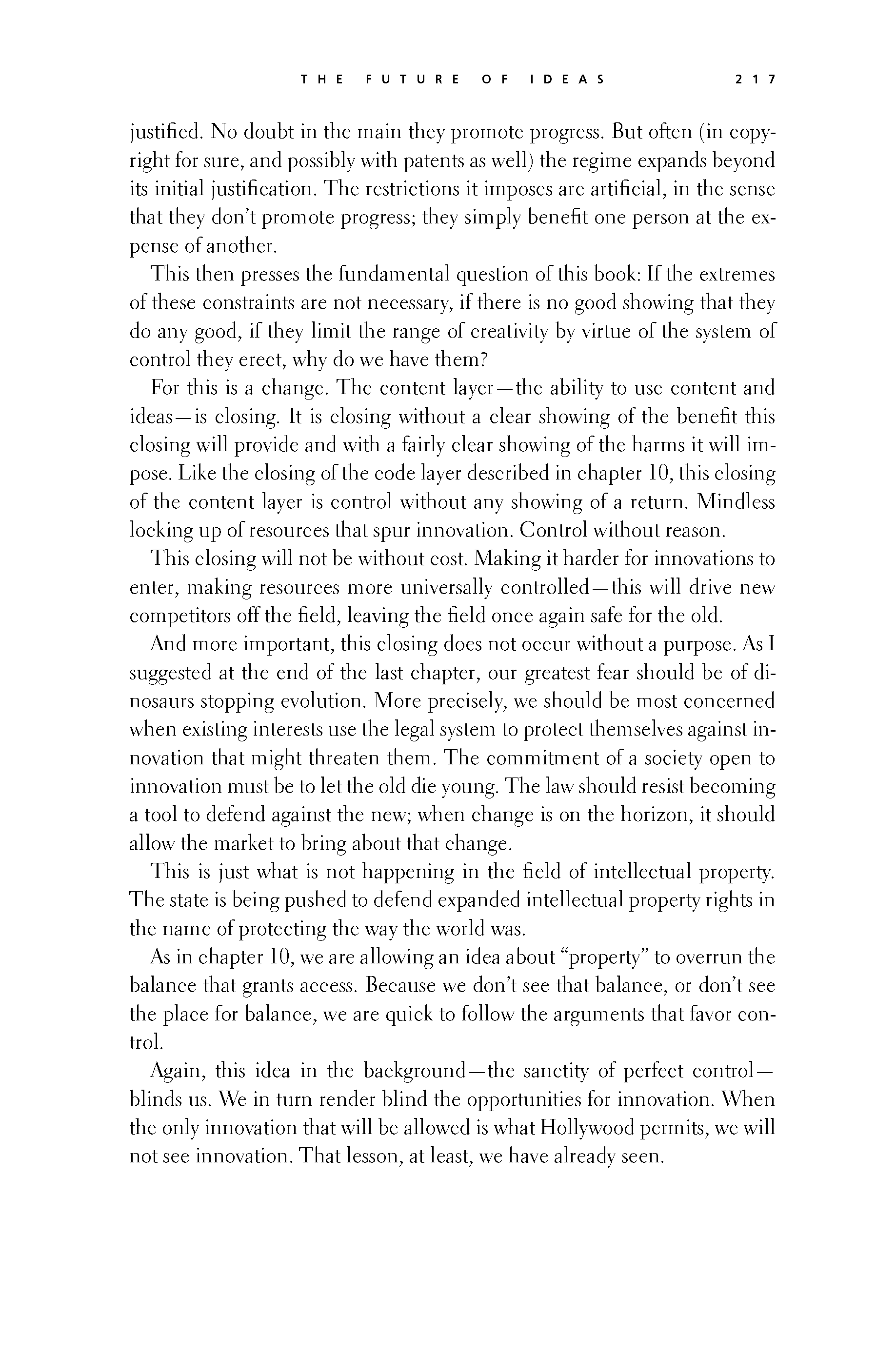 p216 _
-chap- _
toc-1 _
p217w _
toc-2 _
+chap+ _
p218
p216 _
-chap- _
toc-1 _
p217w _
toc-2 _
+chap+ _
p218
justified. No doubt in the main they promote progress. But often (in copy-
right for sure, and possibly with patents as well) the regime expands beyond
its initial justification. The restrictions it imposes are artificial, in the sense
that they don't promote progress; they simply benefit one person at the ex-
pense of another.
This then presses the fundamental question of this book: If the extremes
of these constraints are not necessary, if there is no good showing that they
do any good, if they limit the range of creativity by virtue of the system of
control they erect, why do we have them?
For this is a change. The content layer -- the ability to use content and
ideas -- is closing. It is closing without a clear showing of the benefit this
closing will provide and with a fairly clear showing of the harms it will im-
pose. Like the closing of the code layer described in Chapter 10, this closing
of the content layer is control without any showing of a return. Mindless
locking up of resources that spur innovation. Control without reason.
This closing will not be without cost. Making it harder for innovations to
enter, making resources more universally controlled -- this will drive new
competitors off the field, leaving the field once again safe for the old.
And more important, this closing does not occur without a purpose. As I
suggested at the end of the last chapter, our greatest fear should be of di-
nosaurs stopping evolution. More precisely, we should be most concerned
when existing interests use the legal system to protect themselves against in-
novation that might threaten them. The commitment of a society open to
innovation must be to let the old die young. The law should resist becoming
a tool to defend against the new; when change is on the horizon, it should
allow the market to bring about that change.
This is just what is not happening in the field of intellectual property.
The state is being pushed to defend expanded intellectual property rights in
the name of protecting the way the world was.
As in Chapter 10, we are allowing an idea about "property" to overrun the
balance that grants access. Because we don't see that balance, or don't see
the place for balance, we are quick to follow the arguments that favor con-
trol.
Again, this idea in the background -- the sanctity of perfect control --
blinds us. We in turn render blind the opportunities for innovation. When
the only innovation that will be allowed is what Hollywood permits, we will
not see innovation. That lesson, at least, we have already seen.
[[217]]
p216 _
-chap- _
toc-1 _
p217w _
toc-2 _
+chap+ _
p218